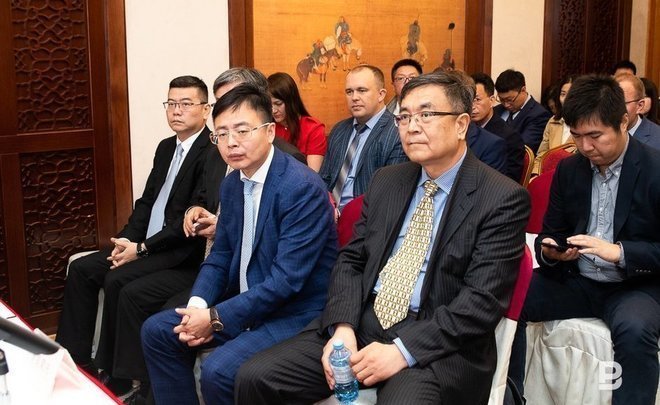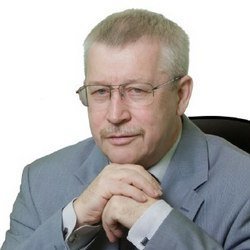Rustem Shayakhmetov: ‘International agenda should not be determined by Western states’
How Asian countries are increasing their share in the global economy, and why it is important for Russia to correctly determine the vectors of development

The Asian Exchange Union is launching its interbank system to replace SWIFT during June. This is going to accelerate the process of de-dollarisation that has already begun, experts say. First, the Union countries will use the system, and in the future China, Russia and Belarus may join them. In this case, they will account for up to 30% of global GDP. Economist Rustem Shayakhmetov tells more about how Asian countries are increasing their share in the global economy in the author's column for Realnoe Vremya.
Slowdown in the development of Western countries
If the 1990s were characterised by the strengthening of the influence of developed countries, and they clearly dominated the world economy and politics, then at the beginning of the third millennium they began to lose their influence. The share of emerging and developing countries in the global economy has more than doubled over the past twenty years.
Changes in the global economy are caused by the slowdown in the development of Western countries. The gross domestic product in current prices of Western countries has increased 3,1 times since 1990 and amounted to 57,6 trillion US dollars last year, and developing countries and emerging markets — from 4,2 trillion US dollars to 42,6 trillion, that is, increased 10,1 times, while global GDP increased 4,4 times.
At the same time, the share of Latin America and Africa in the global economy has changed slightly, the main GDP growth is due to Asian developing countries. If global GDP has increased by 33% over the past 10 years, then the gross national product of emerging and developing Asia — by 97%, China — by 112%, India — by 85%. And the European Union's economic development rates turned out to be 2,4 times lower than the global average.
Russia did not turn out to be a driver of global development, while the US economy grew 1,6 times.
Currently, eight Asian countries are in the top 20 in terms of GDP, and three are in the top 5: China, Japan, India. Over the past 10 years, the EU's share has decreased by 1,2 times, Russia's — by 1,3 times, while China's share in the global economy has increased by 1,6 times, India's — by 1,4 times.
During this period, India moved from 11th place to 5th in terms of GNP and is expected to occupy the third position by 2027. The “Asian offensive” is connected not only with these two giants, but also with the growth of smaller countries. Thus, Indonesia is on its way to becoming the 13th economy in the world by 2028, overtaking Spain. Thailand is going to overtake Norway, Belgium, and Vietnam — Sweden.
Asia is going to dominate the global economy
Asia is becoming the most significant regional economy in the world, its power is growing due to deepening integration in trade, investment, innovation, and knowledge flows. It will dominate the global economy in the foreseeable future and determine the next stage of globalisation. At the same time, the share of developed countries will continue to decline. This year, half of the growth in global GDP will be generated by India and China.
It should be noted that the share of the largest advanced economies (G7) decreased from 65% in 2000 to 44% in 2022, and according to the IMF forecast, it will decrease to 41% in 2028. Due to the diminishing role of the West in economic processes, it is trying to limit the flow of goods and services from other countries to its markets, seeking to protect its producers. However, with regard to Asia, the West cannot act radically, since the domestic demand of Asian countries is growing at a faster pace, and it is becoming more significant than the European and the United States. An adequate Asian response will create economic losses for Western states, which will be more significant than the benefits of closing Western markets for Asian competitors. As a result, the West is forced to take into account the growing role of Asia in the world.
In many ways, this is predetermined not only by the growth of the Asian population, but also by labour productivity. If GDP per capita in 2012 in emerging and developing Asia was almost three times lower than the global one, then in 2028 the gap is expected to narrow significantly. Global GDP per capita is going to be only 1,6 times higher. In China, the volume of GDP per capita will exceed the global one by 1,2 times.
“It is important that Russia correctly defines its development vectors”
Developed countries have ceased to be the driving force of the global economy, as their development has slowed down. Now global growth is taking place at the expense of developing Asian countries, and they are beginning to shape the global agenda. The transformation of their economy has acquired epic proportions, reminiscent of the changes at the end of the 19th century in the United States of America, which led the United States to world leadership.

Naturally, Western countries, due to the existing conflicts in Asia, are trying to reduce its role in world processes, in particular by pushing India against China, including the transfer of part of the investments and production of Western companies from China to India. But in strategic terms, the accelerated development of India forms another powerful geopolitical competitor of the West, such as China, whose influence they are trying to limit.
The thing is that India, like China, is striving to move from simple participation in global flows of trade, capital and innovation to determining their content and directions of development. Therefore, it is now necessary to understand how Asia will determine its role in world processes, how it intends to carry out its actions. Now developing Asian countries, primarily India and China, are largely intercepting the role of the West in global development. Accordingly, in the foreseeable future, Asia's role in setting the rules in the world will be dominant, which all countries, including the West, will have to consider.
It is very important that Russia correctly defines its development vectors, since new key players in the global space will not set exceptions for us. The main thing is that Russia does not repeat the trajectory of development of Argentina, which 100 years ago was one of the most developed countries in the world, and then missed its chance and moved into the category of countries catching up with a large margin from the leaders.
Reference
The author's opinion may not coincide with the position of the editorial board of Realnoe Vremya.